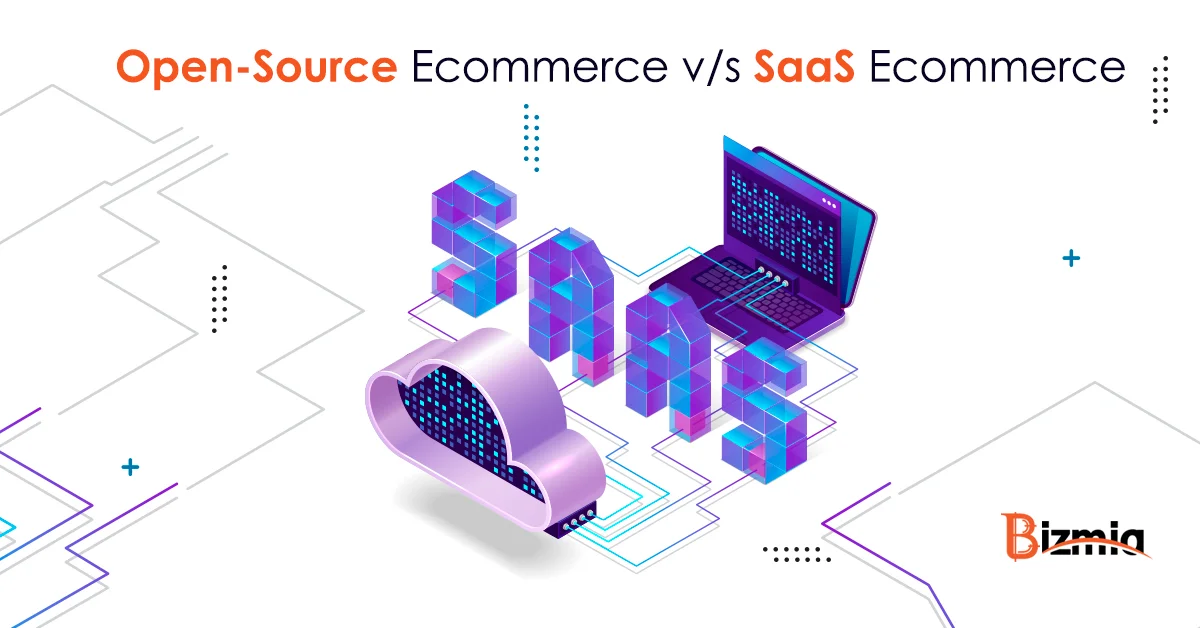The rapid evolution in e-commerce has caused all merchants and brands to shift towards online business. Various e-commerce solutions have been proposed in recent years that range from WordPress WooCommerce plugins to other dedicated SaaS options. Every company contemplating a move to the web must first determine whether it will use an open-source e-commerce system or a software as a service (SaaS) model. This post will discuss everything you should think about before making your decision.
The Basics
SaaS stands for software as a service. The basic idea of SaaS is to host an online store on the server of another company. This company manages all the technicalities to run the store BigCommerce, Shopify Shopify Plus, and Zoey are the most popular names in this industry. While in open-source e-commerce the store owner or management itself is responsible to install the platform on a server, tackling the technical aspects like hosting, security, and running the entire store. WooCommerce plugins, OpenCart, and Magento are doing the best of this kind.
Potential Benefits of SaaS E-commerce
Quick Setup
Unlike other software, there is no need to install or download anything from scratch. Since it is hosted online, all that is required of you is to join up and set up an account. In this manner, you may set up a web-based shop that you can manage and tweak in any web browser.
User Friendly
In generic circumstances, SaaS platforms are built and developed in such a way that all the complexity and limitations are thrown out of the box. This characteristic creates a win-win situation for both the newbies and non-tech merchants.
Cons of using SaaS platforms
Minimum Control and customization
SaaS platforms don’t allow to have complete access to the code of the software so the users can’t modify anything anywhere. Users are limited to using the tools as they are provided and go with the flow.
Highly Expensive
SaaS systems are appealing because they appear inexpensive at first glance, but the reality is that most businesses need to install an additional ten to fifteen apps to run well.
Potential Benefits of Open-Source E-commerce
Full Access
As open-source platforms are openly available to everyone so anyone can create a customized shopping store by having complete access to the code. It’s the best option for you if you like customization for free!
Community Support
The entire community of developers and the rest of the users may help you out with your questions whether you’re on the paid plan or not.
Cons of Open-Source E-commerce
More Technical
Open-source platforms are easy to use but one must have a developer in his team who can understand and tackle the code to accomplish the tasks.
Regular Maintenance
It is such a tough task to keep the software updated, tackle security risks, and maintain the speed of your application or website. This is not possible until and unless every task is managed on a regular basis.
Ending Note
After briefly comparing Open-Source and SaaS e-commerce, which is best for your business? The solution is simple! If you’re okay with minimum customization, your key focus is on scaling the business SaaS is for you. The exception to this is if you are a developer or work with one and want further customization but cannot purchase commercial software. You can go blindly go for Open-Source platforms. Here is another better solution. Zoey is an innovative e-commerce platform that makes a hybrid of both SaaS and open-source platforms to improve the business and shopping experience. Visit their website to learn more.
The best way to predict the future is to create it. With the tech expertise that we have at Bizmia, the stage is set for greater things. Let’s talk about how we can make you materialize the future that you have envisioned.


